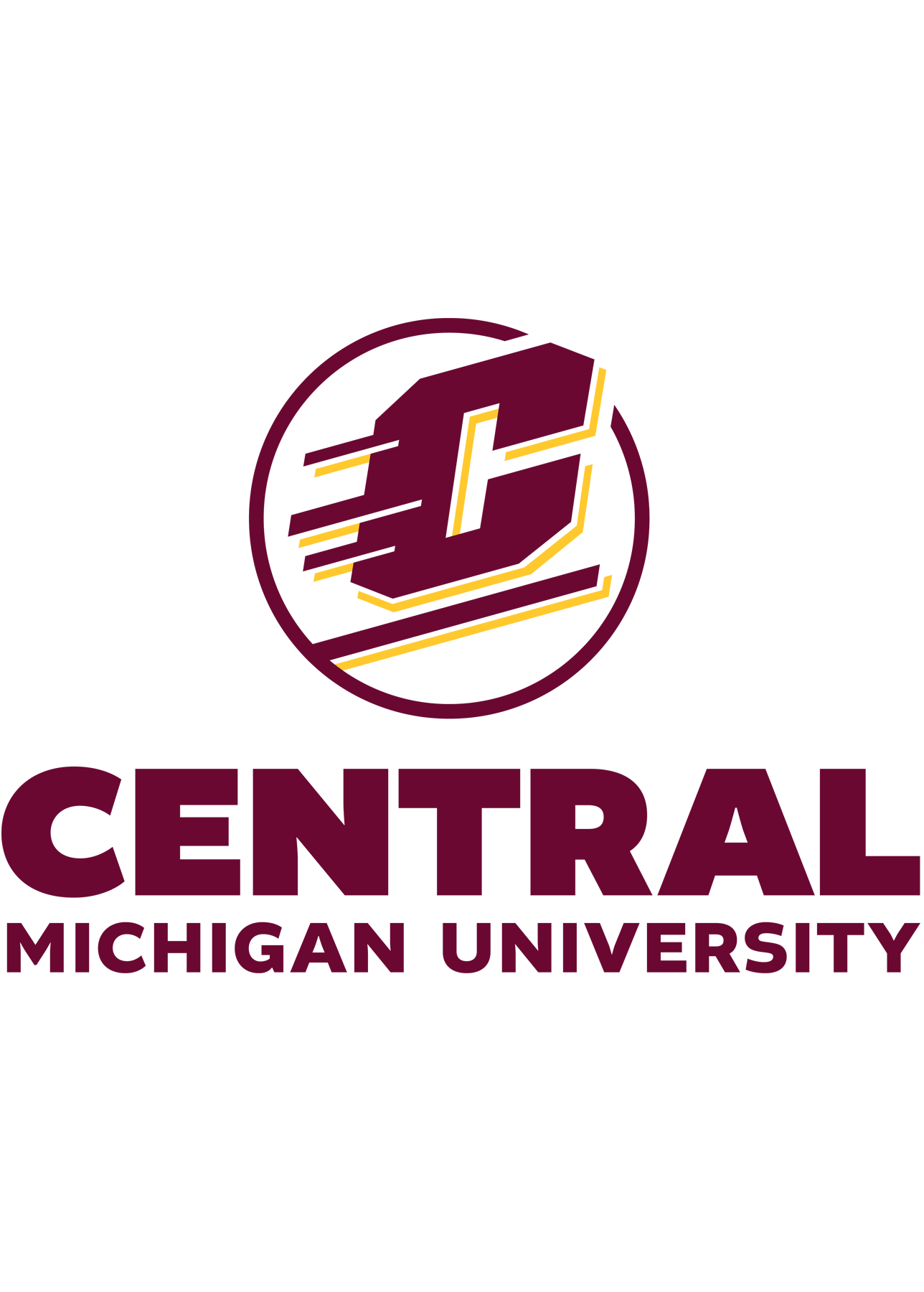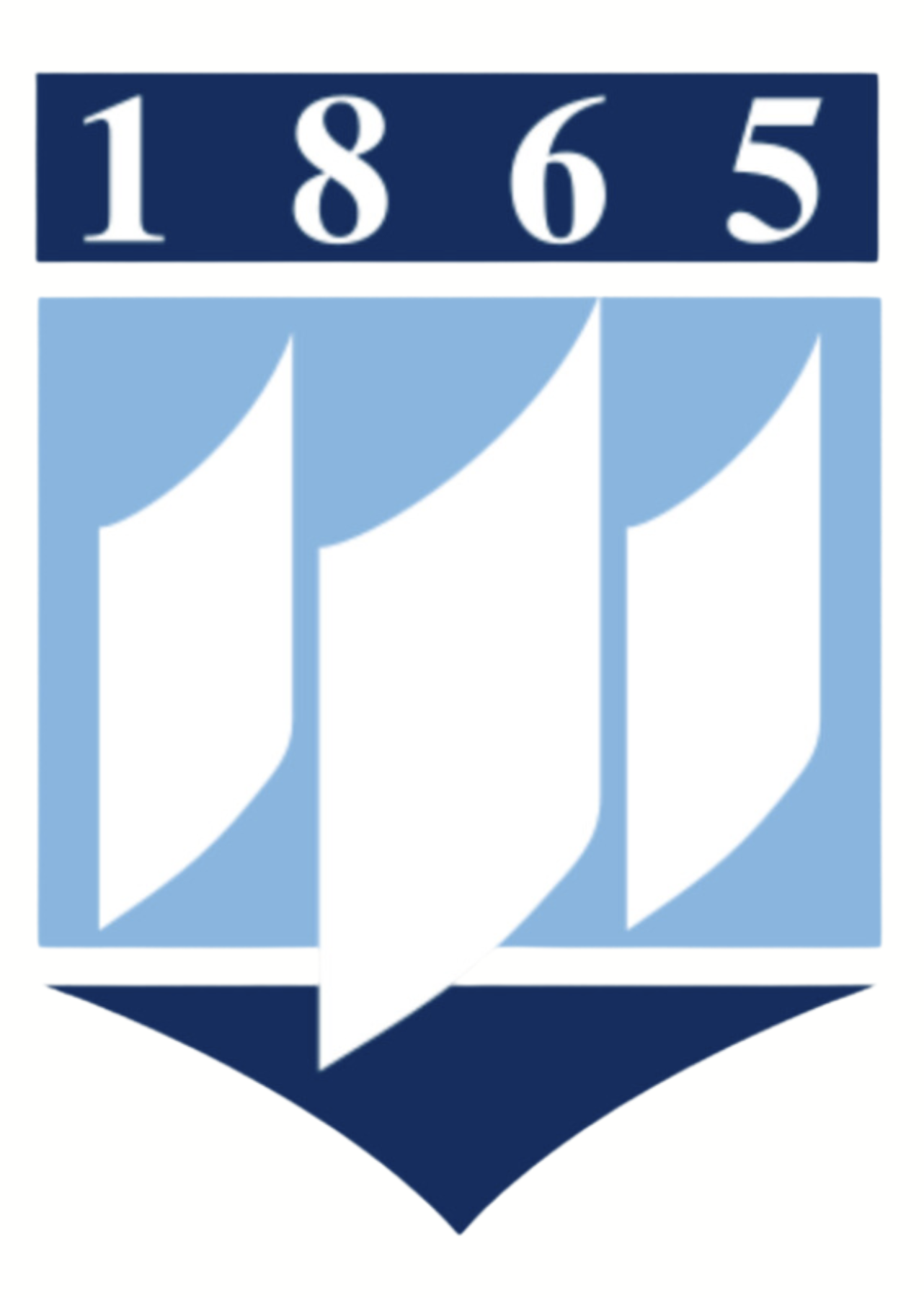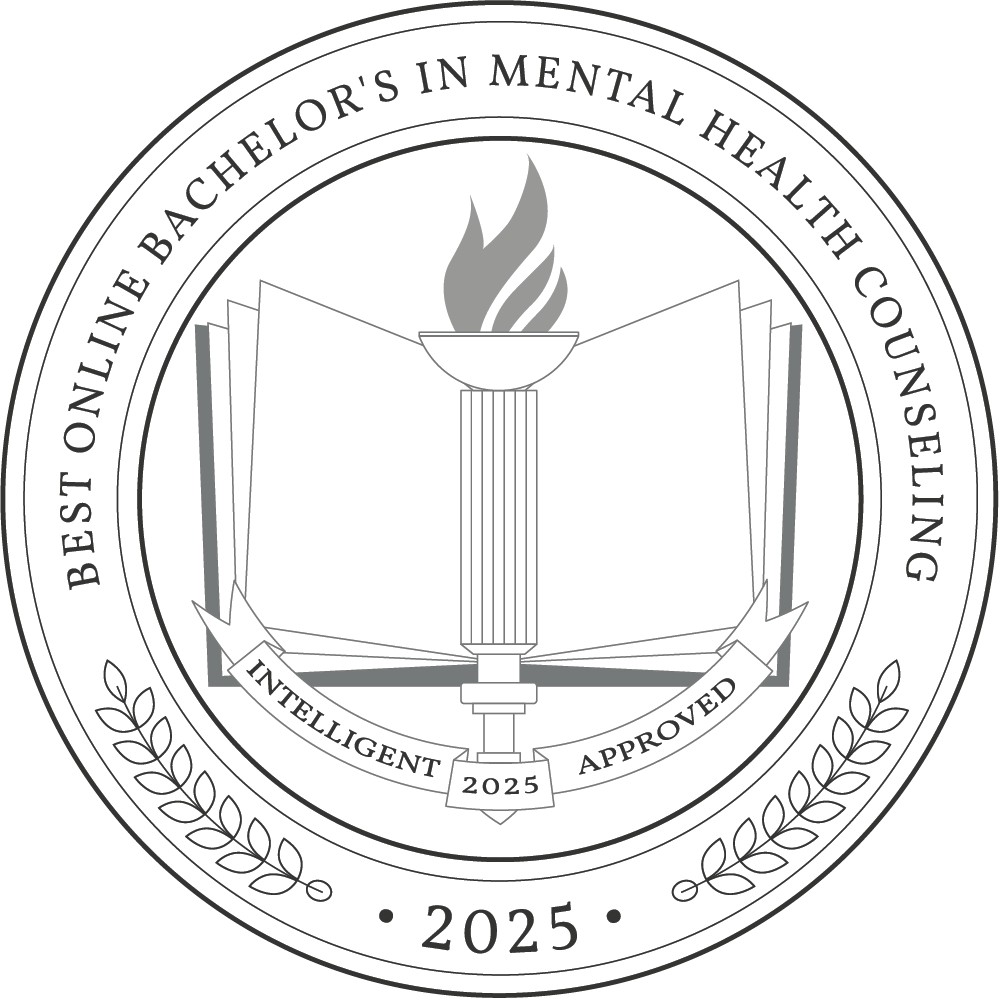As mental health becomes an increasingly important focus in society, professionals in this field are in high demand. An online bachelor’s in mental health counseling offers a flexible, accessible way to start your journey into this rewarding profession.
While licensure as a counselor requires a master’s degree, these programs are an excellent foundation for further education and prepare you for entry-level roles such as social services assistant, with a median salary of $41,410, or HR specialist, with a median salary of $67,650.
Typically, these programs take around four years to complete, and the average tuition is $14,688 per year.
Why Trust Us
The Intelligent.com Higher Education Team is dedicated to providing students with independent, equitable school and program rankings and well-researched resources. Our expert-driven articles cover topics related to online colleges and programs, paying for school, and career outlooks. We use data from the U.S. Department of Education’s College Scorecard, the National Center for Education Statistics, and other reputable educational and professional organizations. Our academic advisory team reviews content and verifies accuracy throughout the year for the most current information. Partnerships do not influence rankings or editorial decisions.
- Analyzed over 2,000 national, accredited, and nonprofit colleges and universities
- 800+ rankings pages are reviewed and updated yearly
- Content is informed by reputable sources, surveys, and interviews with academic advisors and other experts
- Over 100 data points are reviewed for accuracy and quality throughout the year, including sources
How we rank schools
Our list features the best online Mental Health Counseling Degree degree programs at top colleges nationwide. Each school featured is a nonprofit, accredited institution — either public or private — with a high standard of academic quality for post-secondary institutions.
We evaluated each school’s program on tuition costs, admission, retention and graduation rates, faculty, reputation, and the student resources provided for online students. We collected data from trusted sources like the National Center for Education Statistics, individual school and program websites, school admissions counselors, and other data sources. Then, we calculated the Intelligent Score on a scale of 0 to 100 based on the following criterion:
Academic Quality:
- Admission rate versus enrollment rate
- Retention rate of students who return after year one
- Accreditation status (regional and programmatic)
- Nonprofit status, both private and public institutions
Graduation Rate
- Overall graduation rate
- Total number of currently enrolled students, including diversity metrics
- Student-to-faculty ratio
Cost and ROI
- In-state and out-of-state per-credit tuition rates and fees
- Required credits to graduate
- Earning potential after graduation
- Availability of federal student loans, scholarships, and other financial aid options
Student Resources
- Available student services for online-only and hybrid programs
- On-campus amenities like tutoring centers and the number of libraries
Read more about our ranking methodology.
Best 3 Accredited Online Bachelor's in Mental Health Counseling Programs
FiltersInstitution Type
Status
- Intelligent Score
- Alphabetically By University Name
- Acceptance Rate
- Enrollment
- In-state Graduate Tuition
- Out-of-state Graduate Tuition
- In-state Undergraduate Tuition
- Out-of-state Undergraduate Tuition

Central Michigan University
Intelligent Score: 99.47In-state: $12,296
Out-of-state: $22,881
In-state: $14,223
Out-of-state: $14,223
SAT: 1000-1210
ACT: 20-26
$477 - $525
Online, On-Campus
Higher Learning Commission
120

Southern New Hampshire University
Intelligent Score: 98.35In-state: $9,600
Out-of-state: $9,600
In-state: $18,810
Out-of-state: $18,810
SAT: N/A
ACT: N/A
$330
Online
New England Commission of Higher Education
120

University of Maine at Augusta
Intelligent Score: 95.28In-state: $9,240
Out-of-state: $30,030
In-state: $8,298
Out-of-state: $8,298
SAT: N/A
ACT: N/A
In-State: $260
Out-of-State: $390
Online, On-Campus
New England Commission of Higher Education
121
How to Choose an Online Bachelor’s in Mental Health Counseling Program
Choose your area of study
Mental health counseling is already a relatively niche field, but you can further tailor your studies to your future career by choosing a specialization. To help narrow your focus, consider these questions:
- Which population do I feel most enthusiastic about helping?
- What time of counseling environment do I envision myself in?
- Do I prefer working with individuals, families, or groups?
For example, if you’re drawn to helping young people, a child and adolescent counseling specialization might be ideal. If you’re interested in addiction recovery, substance abuse counseling could be the best fit. Other options may include marriage and family counseling, crisis and trauma counseling, and school counseling.
Research schools and programs
Once you’ve chosen a specialization, researching schools and programs is essential to finding the right fit. You may come into this process with questions of your own, but here are a few more to guide your research:
- What is the program’s accreditation status?
- How flexible is the course schedule for online learners?
- What support services are available, like career counseling or internship placement?
- Are there opportunities for hands-on experience in my specialization?
For the most accurate information, it’s generally recommended that you go straight to the source. Visit school websites, speak with admission counselors, or attend a virtual open house to get further insight into the program’s offerings and requirements.
Prepare for tests and applications
By now, you’ll likely have a shortlist of schools to apply to. Start by gathering transcripts and letters of recommendation early to avoid delays in the application process. Begin drafting your personal statement or essay responses well in advance, giving yourself plenty of time to revise and ensure your goals are articulated.
If standardized test scores, such as the SAT or ACT, are required, consider enrolling in prep programs to boost your performance.
Select your program
The arrival of acceptance letters is always an exciting time, but it can quickly become overwhelming if you receive more than one. Take some time to revisit your initial research criteria, focusing on factors that matter most — such as program flexibility, curriculum relevance, and support services for online learners.
This is also a great time to reassess the total cost of attendance. Compare tuition and fees for each program and weigh them against any financial aid offers, prioritizing those offering scholarships or grants. By balancing your academic and financial priorities, you can choose the program that best fits your needs and future goals.
Determine how you’ll pay for your degree
Paying for your degree without incurring substantial debt may seem impossible, but many financial aid resources are available to help.
Start by filing the FAFSA to determine your eligibility for federal aid and apply for institutional and external scholarships and grants to offset costs further. If you’re seeking part-time work, explore work-study programs. For those employed, ask if your employer offers tuition reimbursement. If you need loans to bridge financial gaps, prioritize federal loans over private ones due to better interest rates and repayment options.
What Can You Expect From an Online Bachelor’s in Mental Health Counseling Program?
By enrolling in an online bachelor’s in mental health counseling degree program, you’ll gain foundational knowledge in psychology, counseling techniques, and mental health disorders. Curriculums typically emphasize human behavior, emotional well-being, and ethical practices, and many offer additional coursework in developmental psychology, abnormal psychology, and therapeutic methods. A capstone project, often required before graduation, allows students to apply their learned skill set to real-world scenarios, boosting critical thinking and practical skills.
While a master’s degree is needed for licensure, these programs will prepare you for further education or entry-level mental health and counseling roles.
Potential courses you’ll take in an online bachelor’s in mental health counseling program
- Human Behavior and Social Environment: Often one of the first courses you’ll take, this class explores how individuals interact with their social surroundings, including family, community, and culture. Students learn about developmental stages and the environmental factors that shape human behavior, providing insight into how these dynamics influence mental health.
- Fundamentals of Counseling: Another core requirement, this course introduces essential counseling theories, skills, and ethical standards. Participants learn basic communication techniques, active listening, and the counselor-client relationship, preparing them to build rapport and effectively support individuals seeking help.
- Drugs and Behavior: Students in this course examine the effects of different substances on the brain and behavior. They’ll learn about addiction, substance abuse disorders, and the psychological and physiological impacts of drugs, preparing them to understand the complexities of substance-related issues in mental health.
- Intervention Techniques: This course focuses on practical strategies for intervening in crises or ongoing mental health challenges. As a student, you’ll learn evidence-based methods to support distressed individuals and develop skills to assess and implement effective treatment plans.
- Case Management Practice: In this class, you’ll learn how to manage and coordinate care for clients with different mental health needs. This often includes learning to assess client needs, develop care plans, and navigate social services to ensure clients receive comprehensive support.
Online Bachelor’s in Mental Health Counseling Degree Frequently Asked Questions
How do I apply to an online bachelor's in mental health counseling degree program?
While some programs may have specific application requirements, many share similar criteria, including:
- High school diploma or equivalent
- Official transcripts
- Personal statement or essay
- Letters of recommendation
Some schools may also require standardized test scores like the SAT or ACT, though many are now test-optional. Before applying, it’s essential to speak with an admissions counselor to ensure you meet all the requirements and clarify any additional steps.
How much does an online bachelor's in mental health counseling degree cost?
The average annual tuition for an undergraduate degree program is $14,688. As an online student, you’ll also want to budget for technology fees, course materials, and textbooks. While these costs can add up over time, you’ll likely save on commuting, parking, and housing expenses, which can make the overall cost more manageable.
How long does it take to earn an online bachelor's in mental health counseling degree?
Earning this degree takes around four years for full-time students, depending on whether they’re transferring any credits in. Part-time students may take five to six years or longer, as they take fewer courses per semester.
The length of the program also depends on the total credit requirements, which can vary by institution. Be sure to double-check your program’s specific requirements, as this will impact how long it takes to complete your degree.

